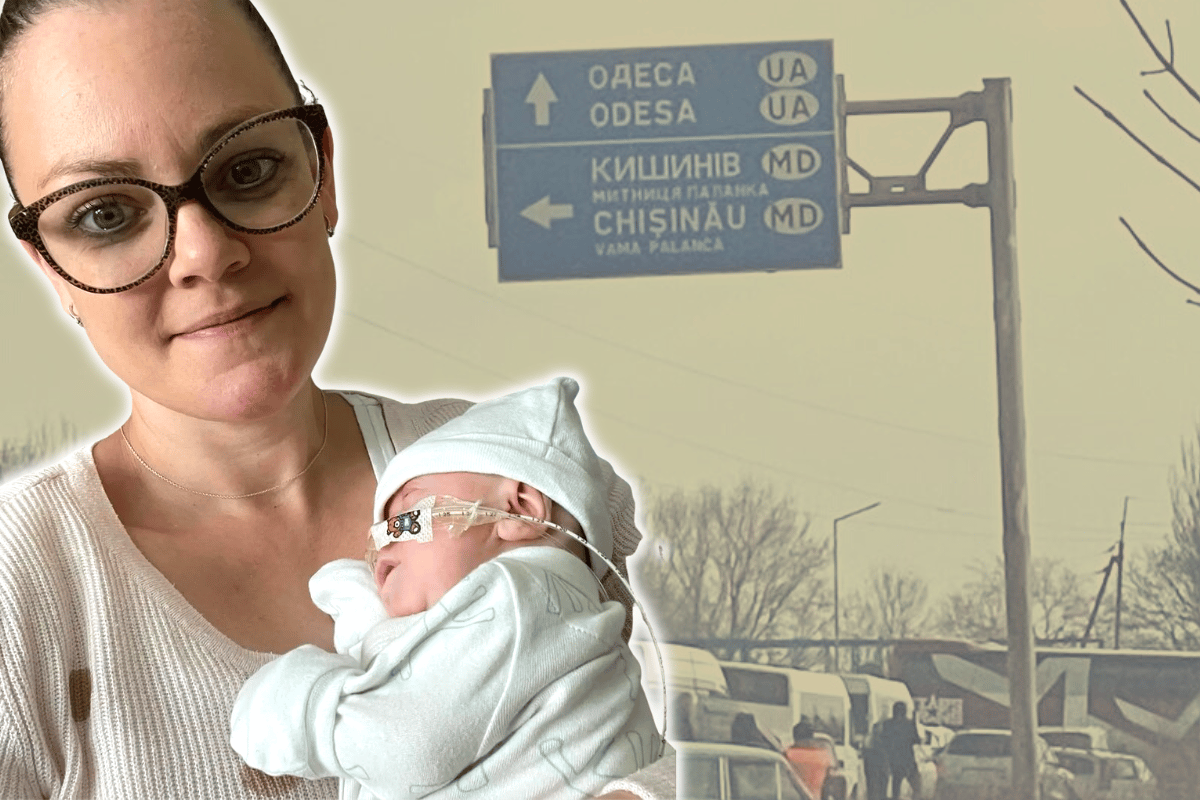
It’s 7am London time when Jess van Nooten and I first speak.
Her words are hushed through the phone. Her voice is friendly, but strained. Tired.
And then I hear Alba’s cry; the little baby that made headlines, born 11 weeks premature via a surrogate in Ukraine - two days before Russia declared war.
“How is she going?” I ask.
“Not great actually,” tells Jess, a 38-year-old chef from Melbourne.
Alba is about to undergo surgery, she explains. Today. At London’s GOSH Hospital.
Listen: Jess van Nooten speaks to Mia Freedman on No Filter. Post continues below audio.
It’s her fifth surgery. And this one is to correct a knotted shunt - a small tube placed in the brain which drains fluid into her stomach.
I listen and reassure her it’s more than okay for us to talk another time. She apologises sincerely, and we say our goodbyes.
Alba's surgery is just the latest challenge in a long line of things that didn't exactly go to plan since she came into this world on 22.02.22.
But then, Jess' past near-decade hasn't exactly gone to plan either.
The journey to surrogacy.
It took eight years - and 15 rounds of IVF - before Jess van Nooten and Kevin Middleton considered surrogacy.
“Every time we did an egg transfer [for IVF] we would fail or miscarry. It was really horrible,” shares Jess when we speak a week later.


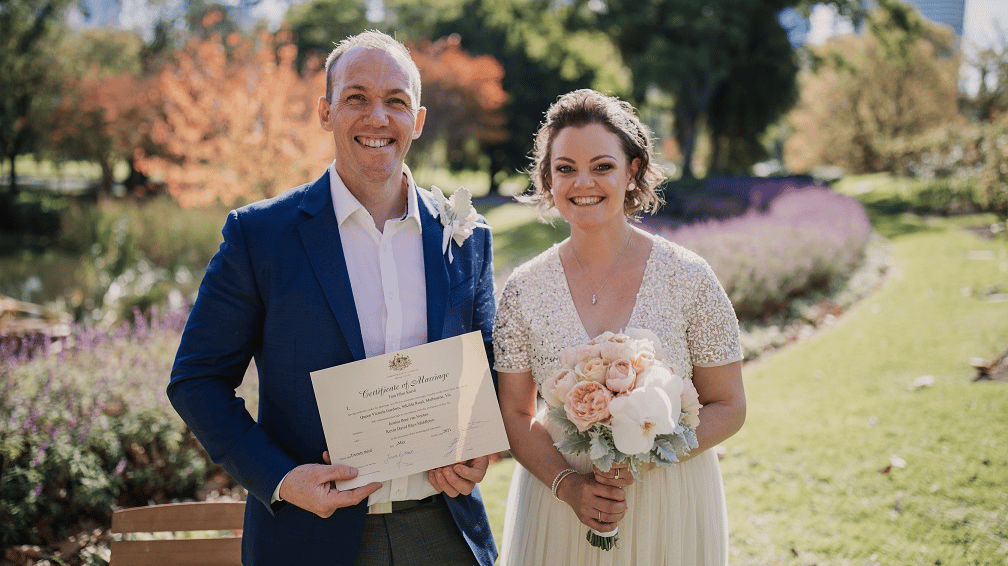
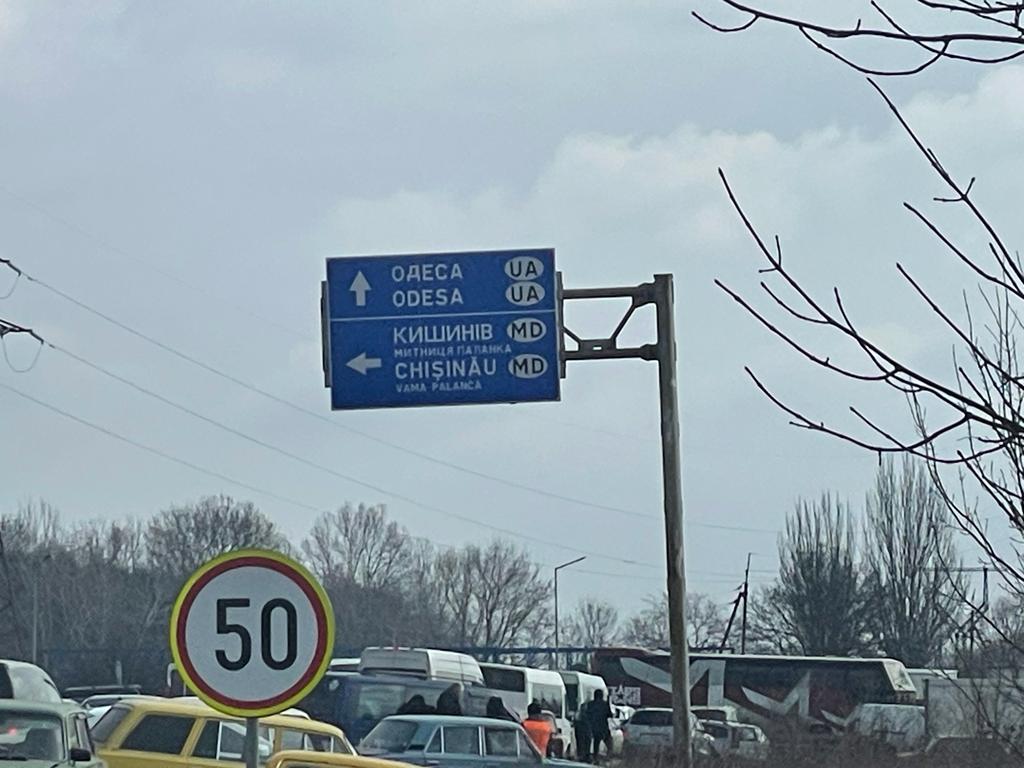
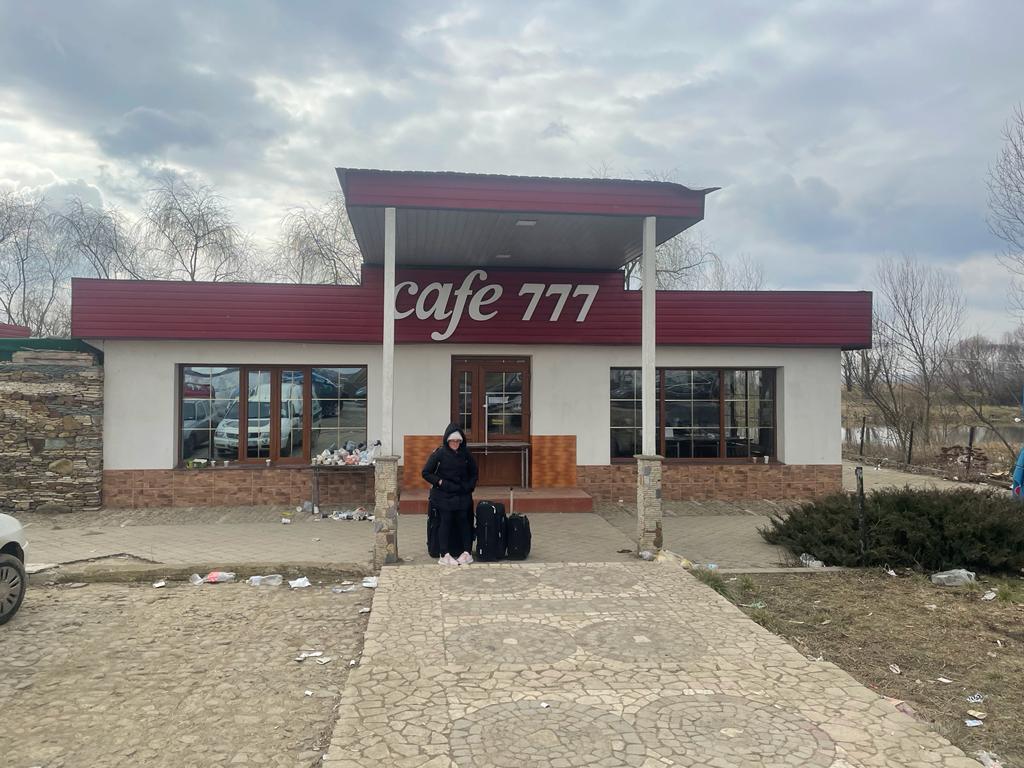
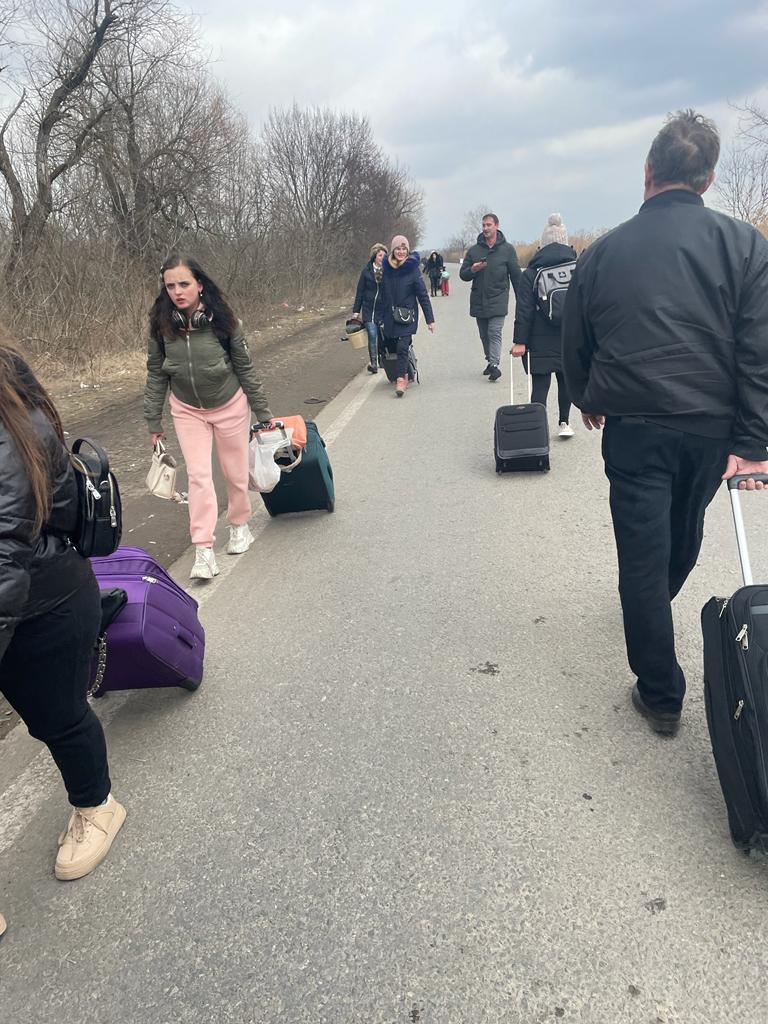
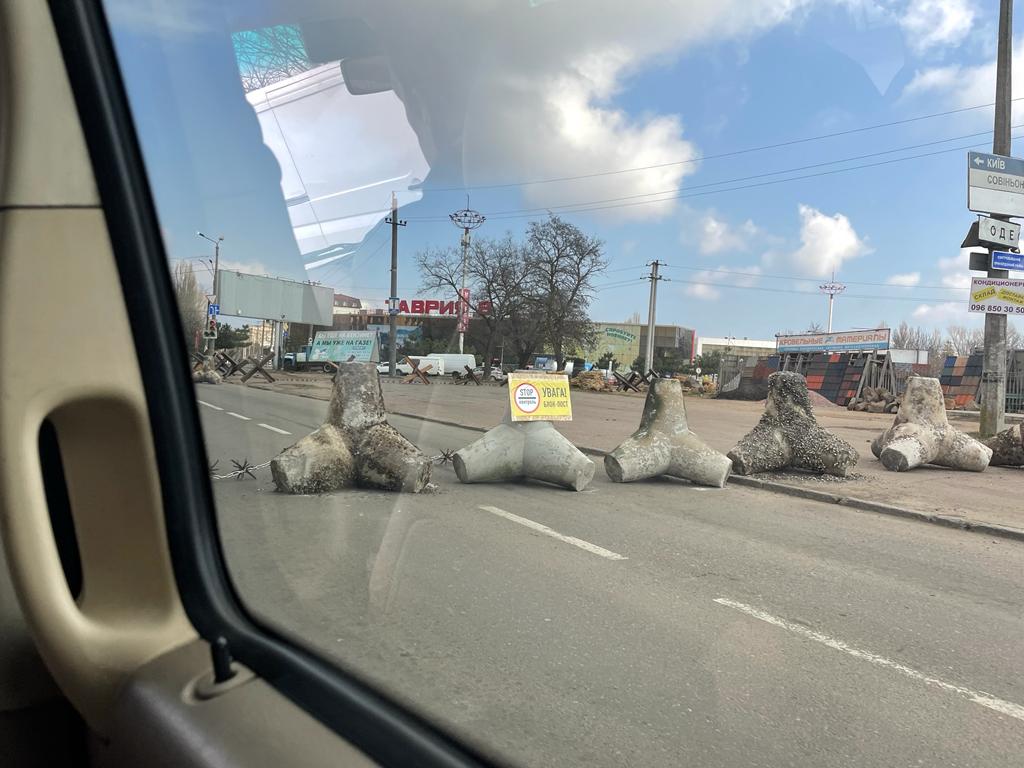
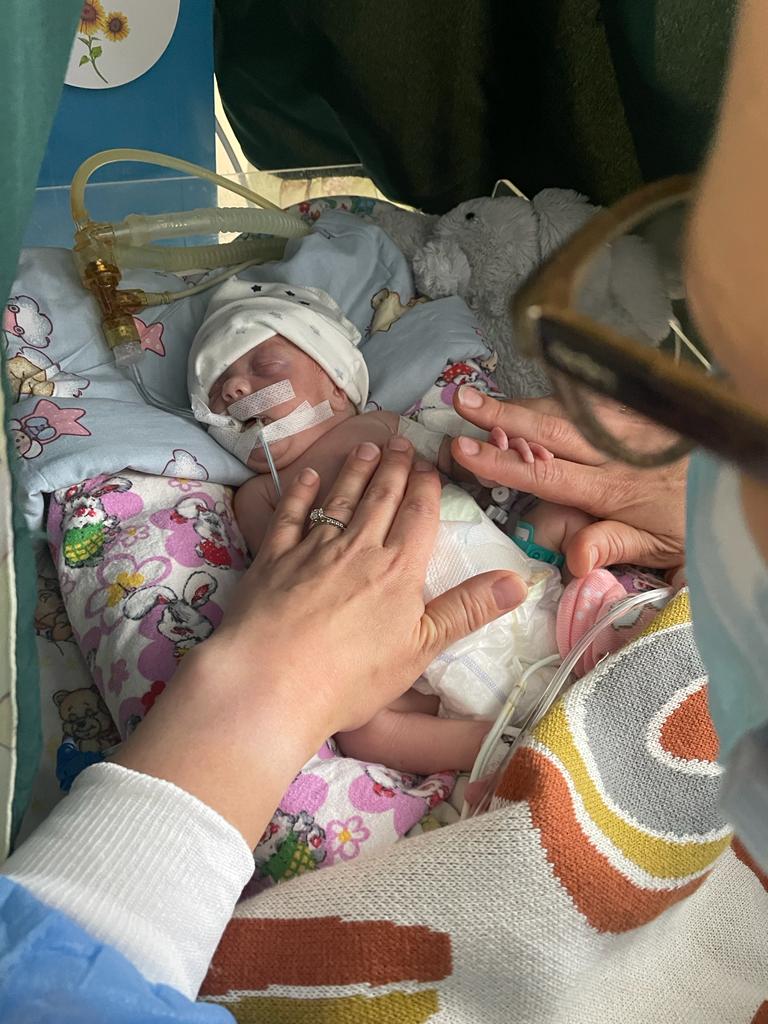
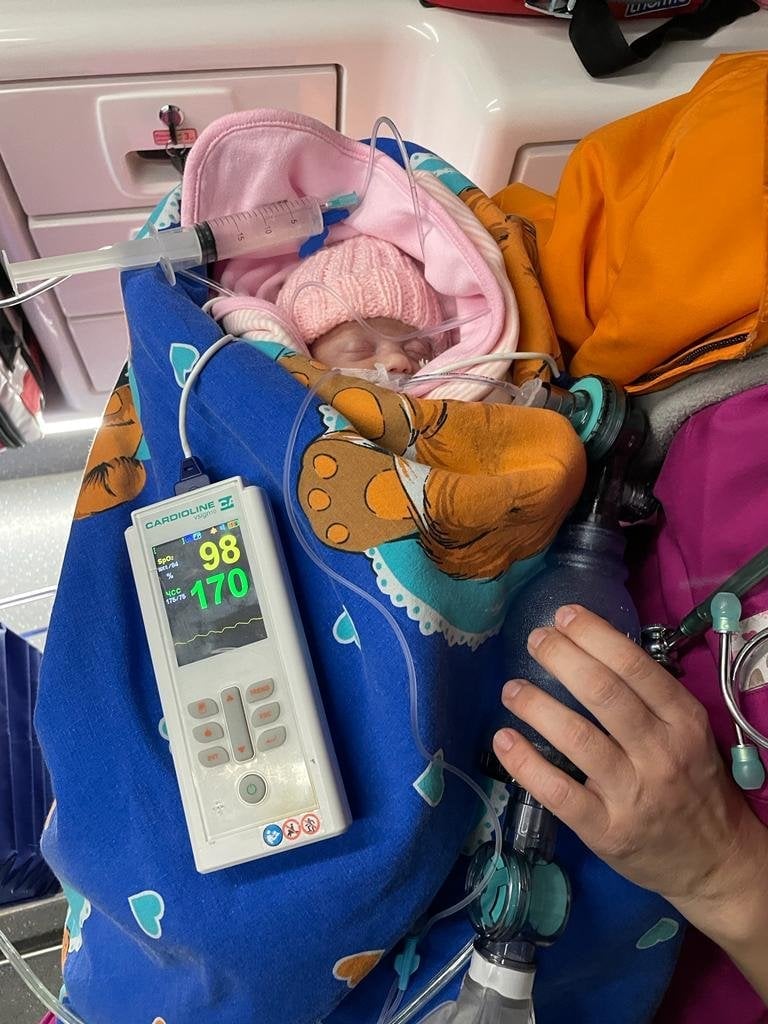
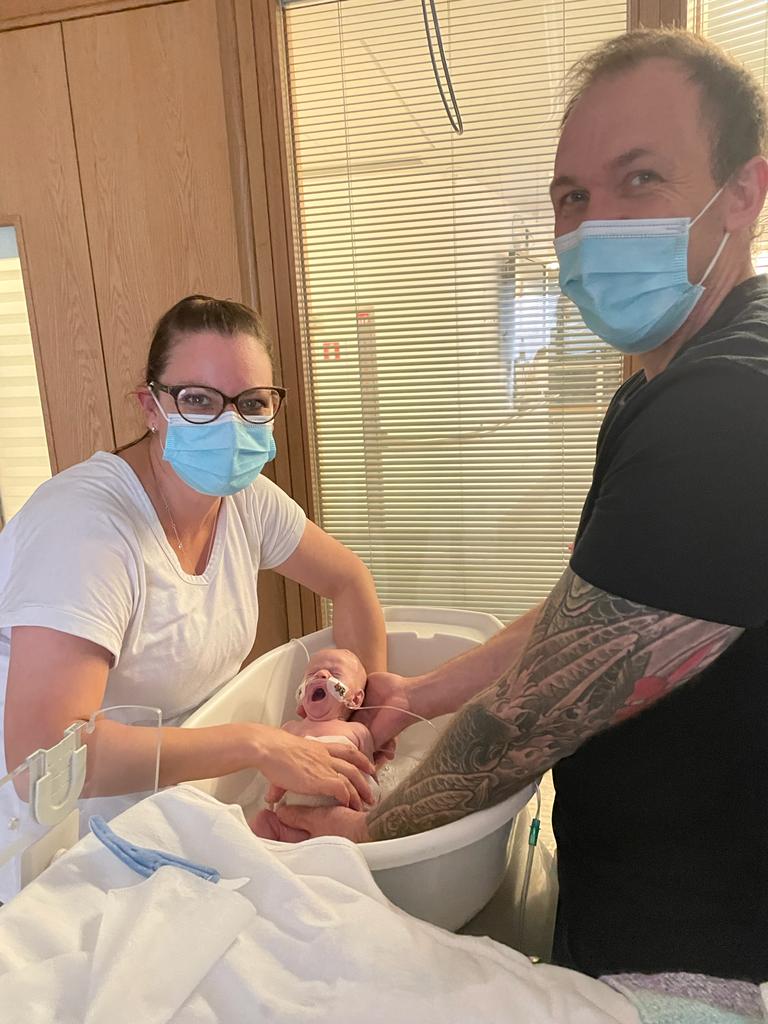
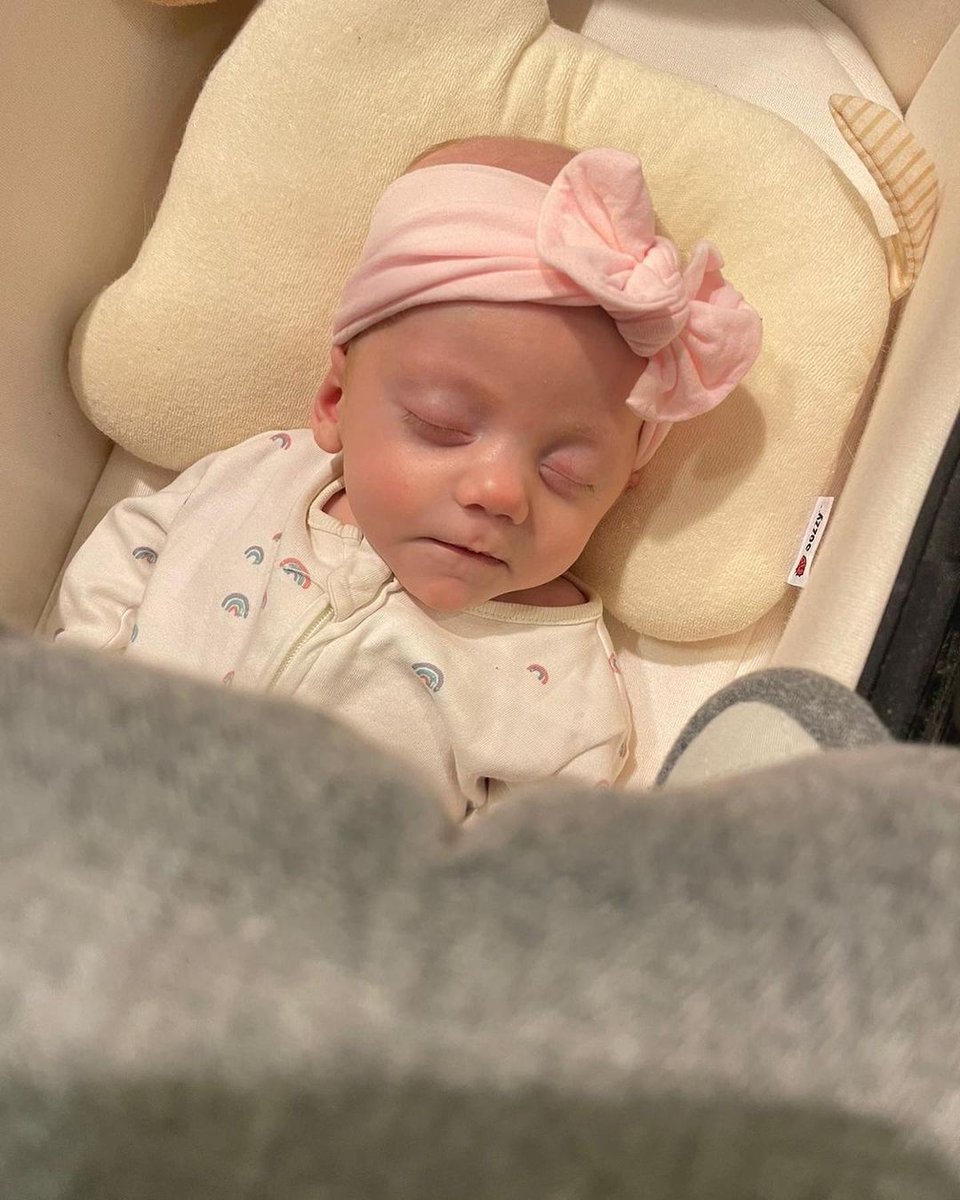
Top Comments